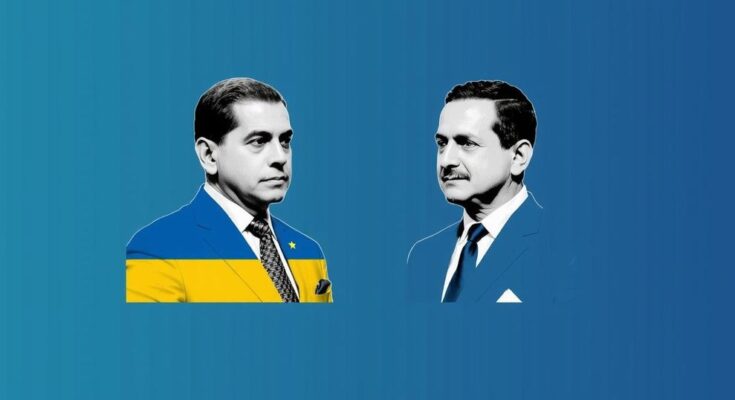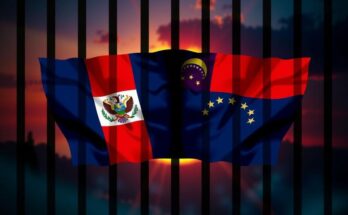The United States has imposed sanctions on 21 additional allies of Nicolás Maduro, citing their role in repression after July’s disputed presidential election. This follows the recognition of Edmundo González as Venezuela’s “president-elect” by the U.S. and ongoing debates within Venezuela regarding sanctions legislation.
The United States has announced the imposition of sanctions on 21 more associates of Venezuelan President Nicolás Maduro, citing their involvement in repressive measures following the disputed presidential election held in July. These sanctions, implemented by the Department of the Treasury, notably target high-ranking officials including the head of the corrections agency, an intelligence service director, and Maduro’s presidential office minister, expanding a list that already includes numerous other Venezuelan leaders.
The actions come in light of the Biden administration’s recent recognition of opposition candidate Edmundo González as Venezuela’s “president-elect.” Concurrently, the United States applied additional visa restrictions against individuals accused of repressing the population after the elections. Despite Maduro declaring victory, the government has refrained from releasing official vote counts, raising widespread skepticism about the election’s legitimacy.
González, who claims to have won the election by a significant margin, fled to Spain in September following an arrest warrant linked to alleged vote tally publication irregularities. Earlier, the U.S. had already sanctioned 16 of Maduro’s allies for obstructing the electoral process and committing human rights violations. The impact of the recent sanctions remains uncertain, given that sanctioned individuals continue to wield significant power within Venezuela’s political landscape. Venezuelan lawmakers are also debating legislation that would criminalize economic sanctions and penalize those who support such measures.
The political landscape in Venezuela has been volatile, particularly following the disputed presidential election wherein President Nicolás Maduro’s victories are contested. The Biden administration’s growing pressure through sanctions aims to target members of Maduro’s government who are believed to facilitate oppression and violate human rights. This ongoing struggle highlights the intersection of domestic governance issues and international diplomatic responses, underscoring the United States’ commitment to supporting the Venezuelan opposition amidst accusations of electoral corruption and governmental abuse.
In summary, the recent sanctions placed by the United States on additional allies of Nicolás Maduro are a direct response to acts of repression following the contentious July presidential election. By acknowledging Edmundo González as the legitimate president, the Biden administration reinforces its support for the opposition while attempting to establish accountability among Maduro’s loyalists. The effectiveness of these sanctions, however, remains uncertain, and ongoing discussions in Venezuela regarding the legal implications of sanctions reflect the complexity of the current political crisis.
Original Source: abcnews.go.com




